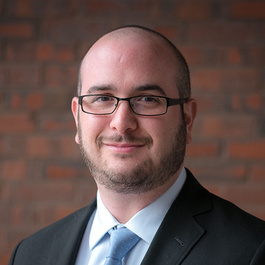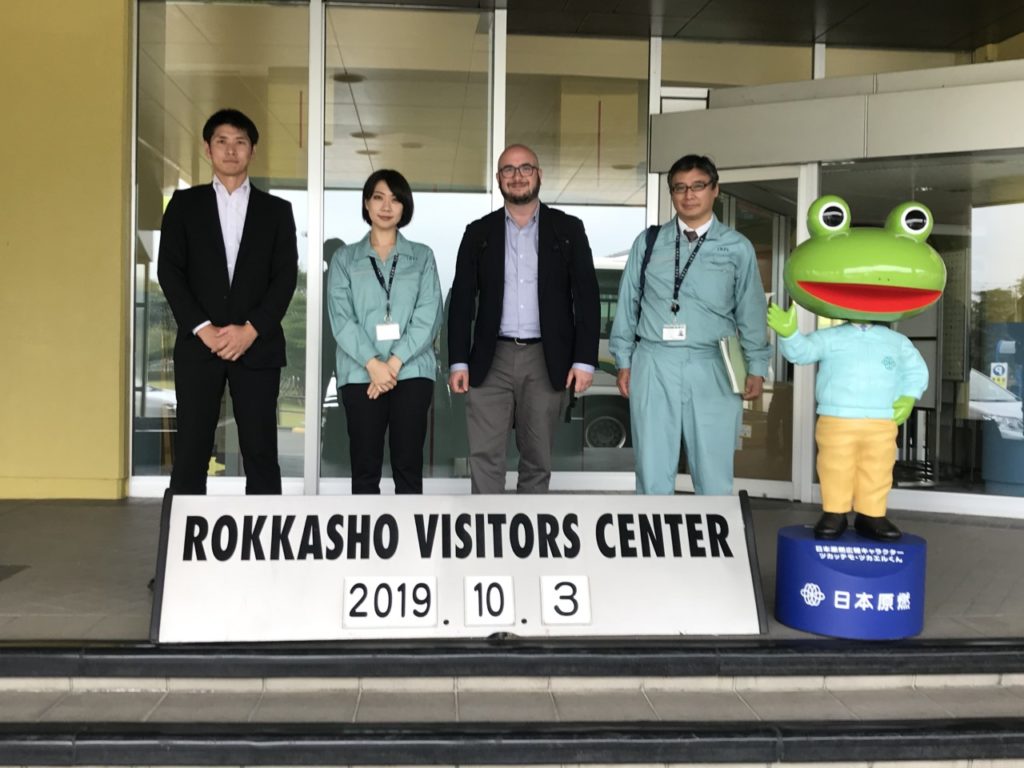
Nickolas Roth is the Director of Stimson’s Nuclear Security program. Previously a senior researcher at the Harvard Kennedy School’s Belfer Center and a current associate with the Project on Managing the Atom, Roth was inspired to focus on the effects of nuclear weapons and nuclear risk by a trip he took to Hiroshima and Nagasaki as an undergraduate.
Why do you work at Stimson?
Reducing nuclear risks has been a passion of mine for nearly two decades, beginning when I travelled to Japan to study the history of the atomic bombings of Hiroshima and Nagasaki as an undergraduate. It was an incredibly powerful experience that changed my world view. I came back to the United States wanting to share with other Americans what I had learned—about the bombings, the victims, and how these were not just historical events, but also reminders of what could happen if we do not take steps to reduce nuclear threats.
What first interested me in Stimson was the institution’s focus on reducing nuclear terrorism risks—one of the most important international security priorities of our time. The Nuclear Security Program develops new ideas and tools to reduce nuclear terrorism risks and helps to implement them. I am fortunate that my grounding in this issue has always been a connection to its impact on people, and this is a major reason why I work at Stimson—first and foremost the organization is about impact. Too often in the nuclear field, the conversation can become detached, theoretical, and lose sight of the fact that we are trying to improve people’s lives.
What has it been like taking on a new project in a pandemic, and what are your plans for the next year?
I am focused on building on the success of my predecessors. We are working to help nuclear facilities improve internal and external communications about their security practices through the development of a Nuclear Security Governance Template. We have established an ongoing series focused on helping nuclear operators adapt to the challenges of emerging technologies. We have published a paper providing recommendations on strengthening international nuclear security recommendations. I also helped to draft legislative language for the National Defense Authorization Act. For being here such a short time and onboarding during a global pandemic, I am very proud of what we have been able to accomplish.
In terms of what is next, I’m looking forward to taking on leadership of the International Nuclear Security Forum, the largest international coalition of NGOs dedicated to strengthening global nuclear security. This group’s focus will be on inspiring and supporting international nuclear security leadership in the nongovernmental sector. I am also looking forward to collaborating with other programs, continuing to learn from my Stimson colleagues, and, someday when it’s safe, meeting them in person.
What is the one thing you wish people understood about your work?
I’d like people to recognize that nuclear terrorism remains a serious threat. The most effective strategy for preventing nuclear terrorism is strong and sustainable security at nuclear facilities capable of adapting to a world filled with constantly evolving threats. One of the Obama administration’s most important nuclear policy achievements was the nuclear security summit process that helped to strengthen nuclear security in dozens of countries around the world. One unintended consequence of that process was that some people feel nuclear terrorism is no longer a problem. Unfortunately, that’s not the case.
Dispelling this sense of complacency is key to ensuring strong nuclear security. We regularly see examples of security incidents at nuclear facilities around the world. For example, there was a cyber attack last year on the Kudankulam Nuclear Power Plant in India. We also regularly see examples of weak, sometimes egregiously weak, security at nuclear facilities. In 2017, a security guard at the Nevada National Nuclear Security Site was sexually assaulted during a training exercise. Threats to nuclear facilities are real, as is the need for stronger nuclear security. The memory of my experience in Japan is never far from my mind. Nuclear security is about ensuring nobody ever has to experience the horror that those in Hiroshima and Nagasaki did.
Follow Nickolas on Twitter @Nickolas_Roth, and learn more about the Nuclear Security Program.



